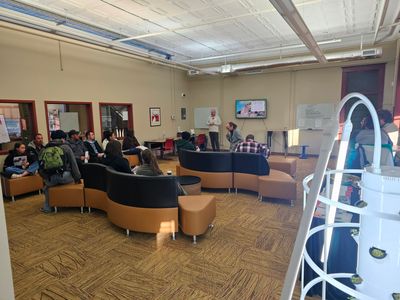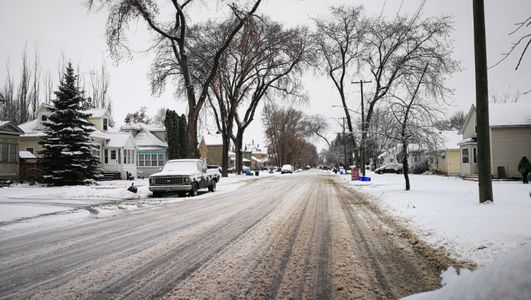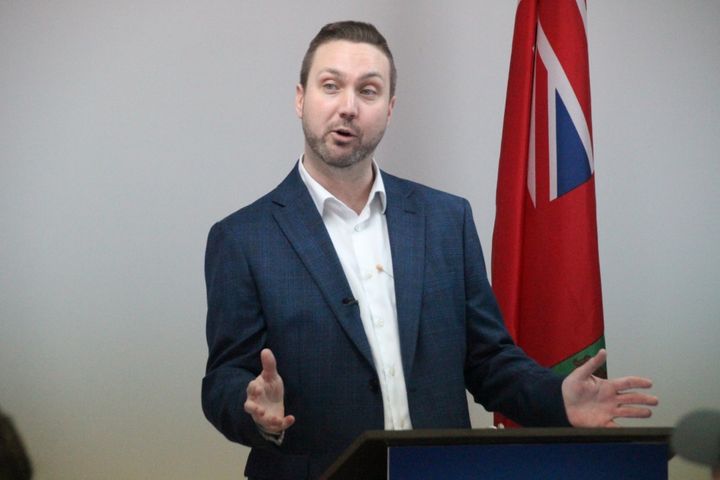Local News
Leslie warns federal budget fuels rising living costs
Portage la Prairie MP Branden Leslie is sounding the alarm over the federal government’s latest budget, saying new spending will continue to push inflation higher and deepen Canada’s debt burden. Speaking from Ottawa, he points to worsening affordability pressures felt across rural Manitoba and the country. Budget concerns Leslie says the federal plan piles on more spending at a time when Canadians are already struggling with high prices, limited affordability, and a weakening investment climate. He points to the size of the deficit and the national debt as major concerns, saying the government is ignoring economic realities. He explains that the budget forecasts another large deficit this year, adding billions to the national ledger over the next several years. “This budget is going to continue to drive up the cost of living with inflationary spending,” Leslie says. “We are looking at a $78 billion deficit this year, and adding $322 billion to the debt over the next five years,” he adds. Leslie notes that the numbers mean debt is rising at a rapid pace. He cites figures that break down the growth into hourly costs, household costs, and the burden on new Canadians. “That is $10 million in new debt every hour,” he explains. "It is $5,000 in new inflationary spending per household, and a newborn like my own is handed a $30,000 bill for the federal debt as soon as they are born,” he continues. He says interest payments alone on the national debt are now larger than the amount the federal government transfers to provinces for health care each year, and more than what Ottawa collects through the GST. “We cannot keep going like this,” Leslie says. He adds that several indicators in the budget suggest the problem is worsening, including projected increases in living costs and unemployment. He argues that productivity remains too low, and investments are leaving the country. “As much as the government says its investments will spark private-sector investment, just repeating that does not make it true,” Leslie notes. Leslie also points to American tariffs, but says Canada’s investment climate has been weakening long before recent trade tensions. Related stories: Knox highlights housing, infrastructure gains in federal budget With Carney's budget tabled, the countdown to a make-or-break confidence vote begins Affordability and recession risk Leslie says the government has ignored repeated calls to reduce the deficit and get spending under control. He notes that his party proposed a smaller but still significant deficit target that would begin moving Canada toward balance more responsibly. “We suggested a deficit of $42 billion,” Leslie says. “Instead, it is nearly double at $78 billion, and deficits are expected to remain high for the next five years,” he explains. He argues that the current path leaves Canada with a national debt of about $1.3 trillion, and the interest paid on that amount moves overseas rather than funding Canadian priorities. “Just like a credit card, the government has to pay interest on all of this debt,” Leslie says. “That money leaves the country, instead of going to health care, roads, or infrastructure,” he adds. Leslie says families work hard to balance their own budgets, and government should do the same. He argues the Liberal government continues to spend taxpayers’ money with little regard for long-term consequences. “All it is going to do is drive up the cost of goods further and make life more unaffordable,” Leslie continues. He says Canada’s national debt has doubled in the past decade, and the current plan does not address the underlying issues that make business investment difficult. Rural priorities overlooked Leslie notes that rural Canada continues to feel overlooked in federal planning, especially regarding industrial policies such as carbon pricing and its impact on agriculture. “Rural Manitoba and rural Canada are largely forgotten,” he says. “The carbon tax increases the cost of fertilizer, farm equipment, and many of the goods we rely on every day,” he adds. Leslie says the government claims these environmental measures will drive cleaner growth, but for producers and rural communities they often mean higher operational costs. He points to water and wastewater infrastructure as key needs for growth in smaller centres and hopes future funding programs will be more accessible to rural municipalities. “It is vital that infrastructure money be accessible and predictable, and made available to smaller rural communities that are often the economic driver of this country,” Leslie explains. Although speculation suggests the budget vote could trigger a federal election, Leslie says the outcome depends on how other parties choose to respond. “It is up to the NDP in particular to decide how they are going to vote,” Leslie says. “I cannot support a budget that drives up the cost of living for the people I represent,” he notes.







